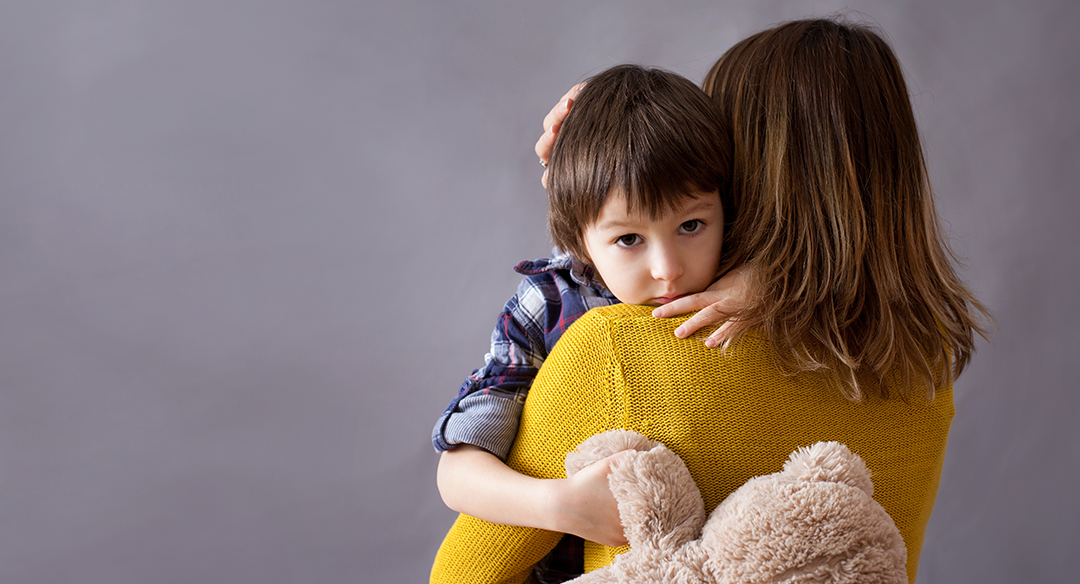Postpartum depression affects a mother’s mood, energy, and stability. However, it also has a significant impact on her child. Children with mothers suffering from long-term postpartum depression (8 months or longer) are more likely to have behavioral problems and academic challenges, and are more likely to suffer from mental health illnesses.
There are many treatment combinations available to mothers suffering from postpartum depression. Many of these treatments can begin working in as little as two weeks. However, many mothers suffering from postpartum depression are never diagnosed or never seek treatment. This is often due to a lack of education surrounding the condition, lack of child care or transportation, financial considerations, or because of social stigma regarding postpartum depression.
Postpartum depression is highly treatable. Without treatment, not only is the mother likely to suffer longer-term with depressive symptoms, but her depression is also much more likely to have long-term impacts on her child.
In a long-term study from the British Avon Longitudinal Study of Parents and Children, researchers found that women who had severe postpartum depression both at 2 months and 8 months after delivery were more likely to continue to have depression 11 years later.
They also found that children were
- 4X more likely to have behavioral problems at ages 3-4
- 2X more likely to have lower math scores at 16 years old
- 7X more likely to suffer from depression at 18 years old[1]
Lower mother-child bonding
Infants interact regularly with mothers during daily routines. However, mothers suffering from postpartum depression may have intrusive or withdrawn patterns that disrupt this natural interaction and connection.
A mother suffering from postpartum depression may abruptly disrupt the infant’s activity, which feels intrusive to the child. This can cause the infant to turn away from the mother or to internalize an angry and protective style of coping.
More commonly, however, the mother may be withdrawn, disengaged, unresponsive, or emotionally flat. These interactions significantly impact the child’s ability to self-regulate and may cause the child to develop passivity, withdrawal, or otherwise have trouble connecting.[2][3]
Decreased cognitive development
Mothers suffering from postpartum depression are less likely to provide a wide range of learning stimulants to infants. Depressed mothers whoareproviding stimulants to their children may not be engaged or providing positive feedback. This can interfere with the infant’s learning and development and impacts their ability to process information.[4]
Increased risk for depression, anxiety, and conduct disorders
Multiple studies have shown an increased risk of psychopathology in children whose mothers suffer from postpartum depression. While some of this may be attributed to genes, a mother’s depression also has a significant impact on family stress, lack of connection, and lack of emotional regulation.
Some new studies are showing that even if there is a heritable risk for depression, reducing the symptoms of depression in the mother reduces the adverse effects on children. It also reduces the risk of future emotional or behavioral problems.
My child is too young to remember – can it possibly have such long-term effects?
Some mothers are hesitant to accept postpartum depression as a factor in longer-term effects like ADHD or depression. However, in an interview with Healthline, Dr. Michael Yogman, pediatrician and member of the American Academy of Pediatrics’ Committee on Psychosocial Aspects of Child and Family Health, Yogman reasserted that these early years in childhood development are critical to long-term development.
“Those are the months when babies learn how they will be responded to and begin to establish trust so that they can ultimately regulate their own behavior. We also believe there is a link between those interactions over the first year and long-term brain function and immune function.”
Read the full article here: https://www.healthline.com/health-news/children-suffer-when-mothers-have-postpartum-depression
Treatment for Postpartum Depression
Postpartum depression is highly treatable, with an over 80% success rate. Treatment is personalized based on the mother and her mental health providers, but may include:
- Talk therapy
- Group therapy
- Support groups
- Medication
- Couple’s counseling
- Intensive outpatient programs
- Self-care
Would you like more information about postpartum depression?
Postpartum depression is highly treatable. Mothers can begin feeling relief from their symptoms in as little as two weeks. If you feel you may be suffering from postpartum depression or would like more information about the postpartum depression treatment programs offered at Serenity Recovery & Wellness, Contact Us.
[1]JAMA Psychiatry. 2018;75(3):227-228. doi:10.1001/jamapsychiatry.2017.4265
[2]Specificity of infants’ response to mothers’ affective behavior. Cohn JF, Tronick. J Am Acad Child Adolesc Psychiatry. 1989 Mar; 28(2):242-8.
[3]Hart S, Field T, del Valle C, Pelaez-Nogueras M. Depressed mothers’ interactions with their one-year-old infants. Infant Behav Dev. 1998;21:519–25.
[4]Paediatr Child Health. 2004 Oct; 9(8): 575–583.



thanks for sharing your insights. This is such a great article. More power!